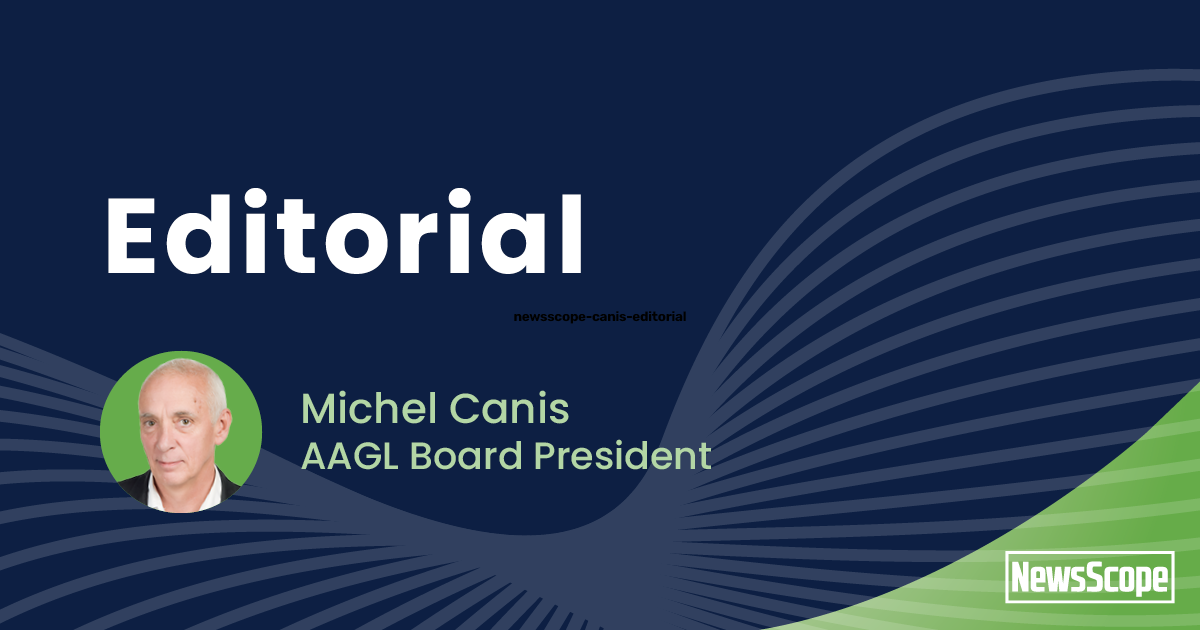
I often ask this question when residents or fellows are, during laparoscopic procedures, moving intraperitoneal instruments blindly, i.e. without a clear vision of the intra peritoneal end of it. It takes one or two seconds to obtain a panoramic view of the peritoneal cavity, to see the distal ends of all instruments and trace their trajectories. These two seconds are mandatory to prevent blind injuries of the bowel and/or of abdominal vessels.
Why are we all, sometimes, moving instruments blindly? Is two seconds an unacceptably long delay, when time is money? Are we complacent? Do we overestimate our ability to avoid blind injuries? There is no rationale to operate blindly. Time, money, and complacency are not acceptable surgical instruments! These few seconds are not the price of a minimally invasive approach. Blind instruments are also used during open procedures. Large myomas are often dissected with blind fingers, whereas laparoscopic myomectomies are ideally performed under visual control, allowing to identify the pseudo capsule, thus decreasing intraoperative bleeding and myometrium trauma. At laparotomy, how often organs are blindly burned by electrosurgery away from the operating field?
“Do not accept to operate blindly, clean your laparoscope!” I often stress that when residents or fellows accept to operate with a foggy image. “Take the time to clean the endoscope! We all know that blind movements and poor vision are major causes of complication during open or laparoscopic procedures and that a few more seconds are enough to avoid these risks.” But we all feel the pressure of operating rooms with overcrowded schedules. We all have been implicitly taught that short operating time is supposed to be the hallmark of talent of the best surgeons. This pressure is worsened when many experts are using fast-forward videos to be able to demonstrate long procedures to fit within the short time allowed for their presentation during Congress. In our world, everything is supposed to go faster. As so often repeated: time is money. But these are not safe surgical instruments!
Saving some money and a few seconds is not worth the cost of inadequate treatment. Patients’ safety is worth the time and increased costs. If any one of us needed surgery, I am convinced that none would be reluctant to spare any expense or spend a few more seconds or minutes on the table to improve the outcome and decrease the risks! Patients are not in a hurry when lying on the operating table. Surgery is a handicraft work, not an industrial process, the OR time has to be adapted to each patient and depends on the surgeons’ hands. We are no longer in the nineteenth century when increasing the length of anesthesia was a risk. A few minutes has no incidence on the post-operative recovery! Should we emphasize here that it was necessary to limit the speed of cars to increase everyone’s safety?
Expeditious surgeons do not move fast, they are not in a hurry, and do not avoid necessary precautions. In contrast, if you look carefully, you will observe how slowly they move their instruments. Expeditious surgeons are fast just by being efficient and avoiding unnecessary movements. The goal is patient outcome, any complication is far more expensive than a few minutes of OR time. So never accept to be blind!
Concluding these thoughts, I would like to share a recent discussion with a colleague general surgeon. “Why do you use this expensive instrument as no studies clearly showed that it improves clinical outcomes?” “My hospital encourages me to use it.” I asked: “Why?” “Because they can charge more if I use it!” I was speechless. When we should look for surgical changes to decrease the carbon footprint of our operating rooms!
Time, money, and complacency are not good surgical instruments, although we all tend to be lazy when we get tired, although we all like to operate as quickly as possible, and money is so powerful that it is difficult to think free from its power!
The post Editorial: Would You Accept to be Operated On by a Blind Surgeon? appeared first on NewsScope.